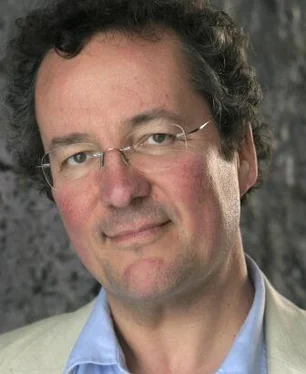She was assailed by sudden nausea, and had to close her eyes for a moment. ‘What is happening?’ she asked dully, and then she began to weep as she remembered the body of her maid, remembered that shattered remnant of a face.
Simon was saddened to see a noblewoman brought so low by circumstances, but he could easily understand her feelings. A pilgrim, many miles from her home, the only companion she would have had was her maid, and now the latter had been snatched away. It was a fearfully lonely life for a woman, no matter how well-filled her purse, if she were left alone. Bad enough to lose a husband, but in some ways Simon thought that for a woman, losing a maid or manservant was worse. The companionship was usually easier and more genuine between master and servant than that which prevailed between married partners.
No one could doubt the genuine sadness of the woman. She had collapsed at the sight of her maid, and now she wept uncontrollably. It was the sort of behaviour that no one of her station would normally indulge in. They wouldn’t want people to think they were so weakly as to become too closely attached to their staff. All too often people did, of course: the number of widows who married their husbands’ stewards was eloquent proof of that.
Rather than contemplate the wailing woman, Simon turned away. Nearby was a woman clad in black, wandering among the crowds. He watched her irritably, half aware of Baldwin arriving at his side.
‘Another ruddy beggar,’ he grouched. ‘There seem to be more of them than pilgrims.’
‘Do not be too harsh,’ Baldwin remonstrated gently. ‘Some are genuine enough.’
Simon winced. ‘I’m sorry, Baldwin. I didn’t mean to pass comment on your old companion. He’s obviously all right.’
‘Not many would agree with you,’ Baldwin said moodily, scuffing a boot on the paving and sending a pebble skittering over the slabs.
‘There is one thing that is beneficial about beggars, though,’ Simon said. ‘Come with me.’
Surprised, Baldwin obediently followed Simon to the edge of the crowds. The beggarwoman in black was moaning gently, a hand wrapped in filthy linen held out to any who passed within her range. There was a repellent odour about her, with a faint hint of lemons, as though she had slept beneath a grove of citrus. Simon caught sight of a pale face beneath her hood, but averted his eyes automatically. One didn’t meet their gaze, because that lent their begging legitimacy and let them feel that they could ask for more money.
‘You speak English?’ he demanded gruffly.
‘Si – a leetle, Señor.’
‘You walk about the crowds here. Did you see the woman with the blue tunic before, the woman who was killed?’
‘I saw her with the Doña there. She was maid to her, called Joana.’
Baldwin smiled as he understood Simon’s reason for questioning this beggar. A beggar could pass through a crowd unnoticed, ignored, as irrelevant as a cur, but might still notice others and make comment about them.
Simon saw his understanding dawn. ‘Today, did you see her leave the city?’
‘Si. She left by the Porta Francigena after lunch.’
‘Was she alone?’
There was a long pause, and then the woman spoke as if reluctantly. ‘I think she was with a man. Perhaps I am wrong, but he was behind her – a tall, dark knight. I have seen him. He is called Don Ruy, I think. A pilgrim to Compostela.’
‘You think he and she were going to a rendezvous?’ Baldwin asked.
‘I do not think she saw him, but he had eyes only for her.’
‘They were both walking?’
‘No. Both were on horseback.’
‘We may need you to speak to the Pesquisidor ,’ Simon said sternly.
‘I am always here in the square,’ she said sadly, and her hand rose a little.
Simon grunted, but he reached into his purse and pulled out a coin. ‘Very well. What is your name?’
‘What need has a beggar of a name?’ she asked softly. ‘I have lost my husband, my home, my station. But I have been called María. My father called me that. You may, too. María of Venialbo.’
‘Very good,’ Simon said and dropped the coin into her palm.
Domingo had watched dully while the men with the body on the cart passed, going towards the Cathedral, but it meant nothing to him. Nothing did, not since the death of Sancho. Life itself had lost its meaning. All that mattered was finding the fair man and executing him. Standing with his men in front of the tavern, he drained his cup and belched.
They had been waiting here as he had told them, and now that the little cavalcade was done and the body had been carried away by Frey Ramón, they all felt the anti-climax. They turned to drinking more cider or wine, thinking about finding some food and maybe a woman. One of his men had told of a serving girl at an inn up the way who had a saucy smile that promised more than mere conversation, or he was a mudéjar !
Domingo sat on a wall with a pot of wine and drank steadily.
This place was too far from home. He’d never have come here if it wasn’t for that bitch of a Prioress. She’d tempted him with money, him and his men. She needed protection, she said. And Joana had added her voice to the Prioress’s. She told her cousin that she needed his help: without some sort of guard, there was no telling what might happen to Doña Stefanía and her. They were carrying something, she hinted, something which was so valuable, they must have men about them to guard it.
It was enough to pique his interest, naturally. Joana knew perfectly well how her cousin made his living; Domingo captured travellers and held them hostage, sometimes wounding them if their families were too slow to pay, occasionally killing them when the whim took him.
His son, poor Sancho, he was a good lad. Not the cleverest, even Domingo wouldn’t suggest that, but he was tough, ruthless and loyal, provided you didn’t take your eyes off him. If you did, you might learn just how ruthlessly ambitious he was. Not the sort of man you would let behind you.
But he was Domingo’s son, and to Domingo a blood tie between man and son was sacred. His duty to find and kill his son’s murderer was equally sacred.
The attack was strange. He still wasn’t sure why the Prioress had instructed them to attack the pilgrims. It was days since she had tried to join the band, days since she had opened her legs to the shabby little creep in the shed. Oh, Domingo knew all about that. He’d seen the churl go in there with the Doña, saw the tall knight walk in and hurriedly leave; later he’d seen the Prioress slip out, walking a little more bandy-legged than she had for a while, and with a huge, grateful smile on her face. But any shame or anger she felt at her subsequent treatment must have faded by the time she told Joana to have Domingo attack the pilgrims.
‘Attack them and kill all,’ Joana had said.
‘Why?’
‘She wills it.’
That was all. Joana had swept around in her nice new blue tunic as though she was going to flounce from his fireside, but Domingo wasn’t so easy to impress. He grabbed her arm and pulled her easily to him, bending her arm behind her back. ‘ Why , I asked.’
There was a prick at his belly, and he glanced down to see that in her other hand she gripped a short knife. ‘Let me go!’ she said through gritted teeth.
‘You’d not kill a chicken with that,’ he said, and then his hand moved. He took the blade in his open hand and twisted. Her face was wrenched with pain as he tightened his grip, squeezing her fingers tightly into the wood. He could feel the blade cutting into the fatty skin at the edge of his palm, but his expression didn’t alter. Pain was something he was used to. ‘Well?’
Читать дальше












